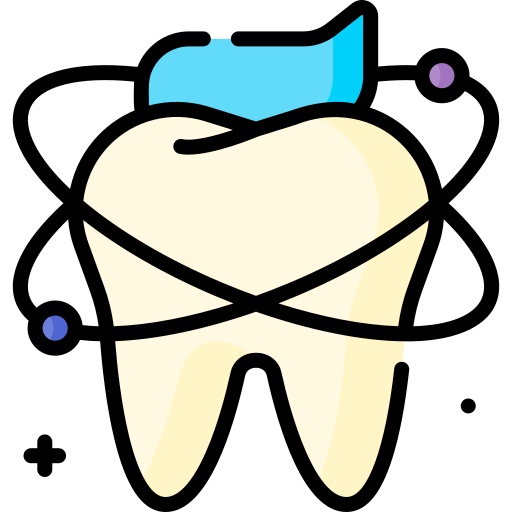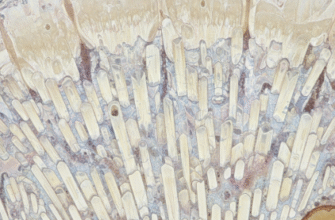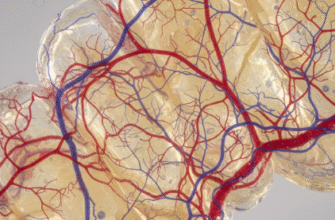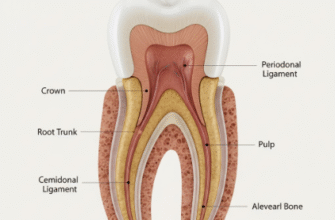We often hear it, and it sounds perfectly logical: fruit is bursting with vitamins, fiber, and all sorts of goodness, so surely the sugars found within them are entirely different, perhaps even benign, when it comes to our dental health. It’s a comforting thought, especially for those of us who love a sweet, juicy apple or a handful of berries. But is this widely held belief actually true? Are natural fruit sugars truly harmless to our teeth? The short answer, unfortunately, is not entirely. It’s time to peel back the layers of this common myth.
Understanding the Sweet Attack on Enamel
To get to the core of the issue, we first need a quick refresher on how sugar – any sugar – impacts our teeth. Our mouths are bustling ecosystems, home to billions of bacteria. Some of these bacteria are harmless, but others have a particular fondness for sugars. When you eat something sugary, these specific bacteria throw a party. They metabolize the sugars, and as a byproduct of this feast, they produce acids.
It’s these acids that are the real villains in the story of tooth decay. Tooth enamel, the hard, protective outer layer of our teeth, is the strongest substance in the human body. However, it’s not invincible. Acids can demineralize enamel, essentially dissolving its mineral content. If this demineralization happens faster than remineralization (the natural repair process where saliva deposits minerals back onto the tooth surface), a cavity can begin to form. The key factors here are the presence of sugar, the bacteria that feed on it, and the resulting acid production.
Is “Natural” Sugar Different to Oral Bacteria?
This is where the myth about fruit sugars often takes root. Fruits contain sugars like fructose, glucose, and sucrose – the very same types of sugars found in many processed foods and table sugar, just in different combinations and concentrations. From a purely chemical standpoint, sugar is sugar. The bacteria in your mouth don’t check the source of the sugar before they start consuming it. They don’t differentiate between the fructose from an apple and the fructose in high-fructose corn syrup, or the sucrose in a banana versus the sucrose in a candy bar.
To these acid-producing bacteria, all fermentable carbohydrates, including the sugars naturally present in fruits, are potential fuel. The process is the same: sugar meets bacteria, bacteria produce acid, acid attacks enamel. So, the idea that “natural” somehow makes fruit sugars inert in this process is, unfortunately, a fallacy.
The Whole Fruit Advantage: More Than Just Sugar
Now, this isn’t to say that a candy bar and an apple are equivalent in terms of their impact on your teeth or your overall health. Far from it! Whole fruits come packaged with a host of beneficial components that processed sugary snacks lack.
- Fiber: The fibrous nature of many fruits requires more chewing, which stimulates saliva production. Saliva is your mouth’s natural defense mechanism; it helps to neutralize acids, wash away food particles and sugar, and contains minerals like calcium and phosphate that aid in remineralizing enamel.
- Water Content: Many fruits, like melons and berries, have high water content. This can help to dilute the sugars and rinse them away from the teeth more quickly than sticky, concentrated sweets.
- Vitamins and Minerals: Fruits are packed with essential vitamins and minerals that contribute to overall health, which indirectly supports good oral health. For instance, Vitamin C is important for gum health.
These factors can mitigate some of the potential harm from fruit sugars. The act of chewing a crisp apple, for example, can have a mild cleansing effect, and the increased saliva flow is certainly beneficial. However, they don’t entirely negate the fact that sugars are still present and will be processed by oral bacteria.
When Fruit and Its Sugars Can Be More Problematic
While eating whole fruits is generally good, certain forms and consumption habits can significantly increase the risk fruit sugars pose to your teeth.
The Form of the Fruit Matters Greatly
- Fruit Juices: This is perhaps one of the biggest areas of misunderstanding. When fruit is juiced, most of its beneficial fiber is removed. What’s left is a highly concentrated solution of sugar and, often, acid. Sipping on fruit juice throughout the day bathes your teeth in this sugary, acidic liquid, providing a constant feast for bacteria and a sustained acid attack. Even 100% “no sugar added” juice is still high in natural fruit sugars.
- Dried Fruits: Raisins, dates, dried apricots, and other dried fruits are also problematic. The drying process concentrates the sugars and makes them incredibly sticky. These sticky sugars cling to the surfaces and crevices of teeth, providing a prolonged source of fuel for bacteria. They are much harder for saliva to wash away.
- Smoothies: While smoothies can be a great way to get nutrients, they can also be sugar bombs, especially if they contain a lot of fruit, fruit juice, or added sweeteners. Blending fruit breaks down some of the cellular structure, potentially making sugars more readily available. If consumed slowly over a long period, they can have a similar effect to sipping juice.
The Acidity Factor
Beyond the sugar content, many fruits are naturally acidic. Citrus fruits like lemons, oranges, grapefruits, and even some berries have a low pH. This means they can directly erode tooth enamel, a process called dental erosion, which is different from decay caused by bacterial acid. So, with acidic fruits, your teeth face a double whammy: the fruit’s own acid and then the acid produced by bacteria feeding on its sugars.
It’s a common misconception that sugars from fruit are entirely safe for teeth simply because they are “natural.” Oral bacteria do not distinguish between sugars from fruit and sugars from candy; they metabolize both to produce enamel-eroding acids. While whole fruits offer benefits like fiber and hydration that can help mitigate some risk, frequent consumption of fruit, especially in juiced or dried forms, can still contribute to tooth decay and erosion.
Frequency of Consumption: The Constant Barrage
One of the most critical factors in tooth decay isn’t necessarily the total amount of sugar you consume in one go, but how frequently your teeth are exposed to it. Every time you eat or drink something sugary, the pH level in your mouth drops, becoming more acidic. It takes saliva about 20-30 minutes, sometimes longer, to neutralize these acids and return the mouth to a safer pH. If you’re constantly snacking on fruit throughout the day, even healthy whole fruit, your teeth are under a near-continuous acid attack, with little time for recovery and remineralization.
Enjoying Fruit Wisely: Tips for Tooth-Friendly Consumption
Debunking the myth doesn’t mean you should shun fruit! Fruits are an essential part of a healthy diet. The key is to consume them mindfully to minimize potential dental risks.
- Prioritize Whole Fruits: Choose whole, fresh fruits over juices, dried fruits, or heavily processed fruit products. The fiber and water content in whole fruits are your allies.
- Eat Fruit with Meals: If possible, consume your fruit as part of a main meal rather than as a frequent snack. When you eat a larger meal, you typically produce more saliva, which helps neutralize acids and wash away sugars more effectively. The other foods in the meal can also help buffer the sugars.
- Rinse with Water: After eating fruit, especially acidic varieties or sticky dried fruit, rinse your mouth thoroughly with plain water. This helps to wash away some of the residual sugars and acids.
- Wait Before Brushing (After Acidic Foods): If you’ve consumed something very acidic (like citrus fruits or juice), it’s often recommended to wait about 30 minutes before brushing. Acid can temporarily soften enamel, and brushing immediately might be too abrasive. Rinsing with water is a good immediate step.
- Limit Juices and Dried Fruits: If you do consume fruit juice, drink it quickly rather than sipping over a long period, and preferably with a meal. Consider diluting it with water. Treat dried fruits as an occasional treat rather than a daily staple.
- Maintain Excellent Oral Hygiene: This goes without saying, but diligent brushing twice a day with fluoride toothpaste and daily flossing are crucial for removing plaque (the sticky film of bacteria) and food debris, regardless of your diet.
- Cheese Power?: Some anecdotal and small-scale research suggests that eating a small piece of cheese after fruit might help. Cheese is alkaline and can help neutralize acid, and it also stimulates saliva. While not a magic bullet, it’s an interesting thought for those who enjoy cheese.
The Sweet Truth: Moderation and Awareness
So, are natural fruit sugars harmless to teeth? The evidence clearly shows they are not inherently harmless. Sugar, in any form, can fuel the bacteria that cause tooth decay. However, this doesn’t make fruit the enemy. Whole fruits offer a wealth of nutritional benefits that far outweigh those of processed sweets. The crucial difference lies in the overall package – the fiber, water, and nutrients – and how we consume them.
The myth is debunked not to scare you away from enjoying nature’s candy, but to empower you with knowledge. By understanding the relationship between sugars (all sugars) and dental health, and by adopting smart eating habits and good oral hygiene, you can continue to enjoy the deliciousness and health benefits of fruit while keeping your smile bright and healthy. It’s all about balance, awareness, and not letting the “natural” label lull you into a false sense of security regarding your dental well-being. Your teeth will thank you for it.








